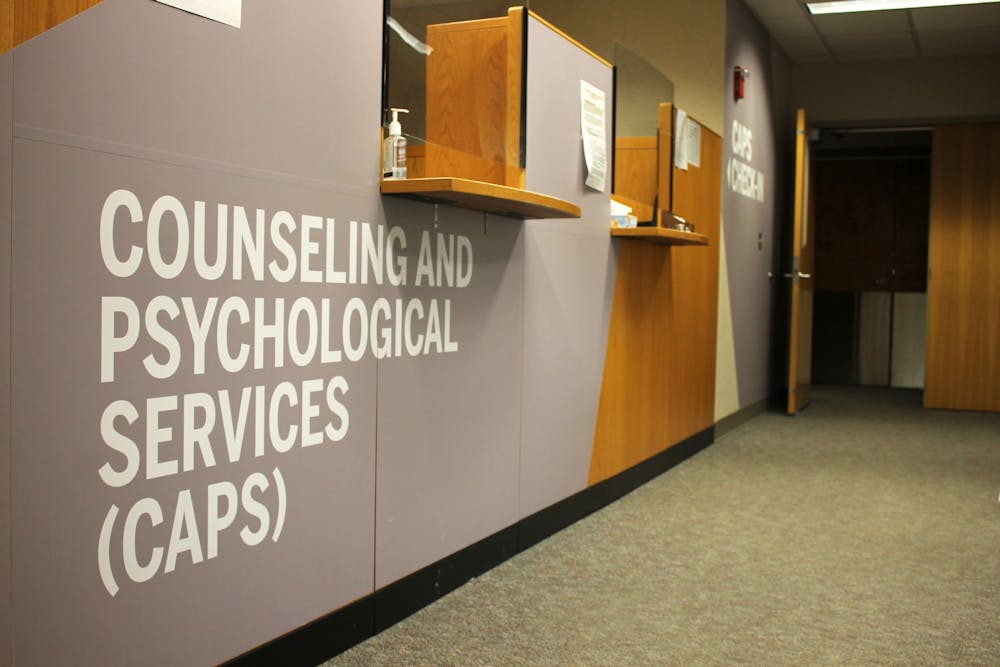According to data from the World Population Review, Indiana has had 972 suicides just in 2022 and has a suicide rate of 14.2 per 100,000 people. According to data from Mental Health America, in 2022 1,125,000 adults in Indiana suffer from any type of mental illnesses.
To help our community better address this issue, the Indiana Daily Student put together a list of resources and information for people seeking help for themselves or others who are struggling with mental health illnesses and suicide.
The most common suicide warning signs:
Long-lasting sadness or mood swings
Suddenly becoming calm after a period of depression or mood swings
Withdrawing from others and interests
Changes in personality, sleep pattern and appearance
Showing dangerous or self-harming behavior
Experienced recent trauma or life crisis
Being in a state of deep despair
Making preparations to end their life
Threatening suicide or talking about wanting to die
How to help prevent suicide:
Be alert and recognize the suicide warning signs
Provide caring support
Ask the person directly if they have considered hurting themselves
If someone appears to be in extreme distress, do not leave them alone. Try to calm them down and get immediate help. Call 911 or go to the emergency room.
If you know someone or if you yourself have thought about suicide, contact the National Suicide Prevention Lifeline. The number is 988 or 1-800-273-8255. They provide 24/7 free and confidential support.
Mental health illnesses consist of a wide range of mental health conditions that can affect one’s emotions, thoughts and behaviors. Some examples are depression, anxiety disorders, schizophrenia, eating disorders and addictive behaviors.
Symptoms will vary depending on the disorder, circumstances and other factors. Here are some general signs and symptoms:
Feeling sad or down
Confused thinking or difficulty concentrating
Excessive fears or worries, or extreme feelings of guilt
Extreme mood changes of highs and lows
Withdrawing from others and interests
Significant tiredness, low energy or problems sleeping
Detachment from reality (delusions), paranoia or hallucinations
Difficulty coping with daily problems or stress
Trouble understanding and relating to situations and to others
Problems with alcohol or drug use
Major changes in eating habits
Sex drive changes
Excessive anger, hostility or violence
Suicidal thinking
However, some symptoms can appear as physical pains, such as headaches, stomach pains, back pain or other unexplained aches and pains.
If you know someone, or you yourself have any of these signs or symptoms, see your primary care physician or a mental health professional. Mental health illnesses do not improve on their own and can get worse over time.
IU offers mental health services called Counseling and Psychological Services. Students can go to their website and call their number, 812-855-5711, to book an appointment for in person or online visits.
If students have paid the student health fee they can get three 30-minute sessions for free. Once students have used the three free sessions, there is a $25 fee for individual counseling and $15 for group. CAPS takes health insurance as well.
Other resources in Bloomington are Bloomington Meadows Hospital which offers inpatient and outpatient care, and Centerstone Bloomington which offers psychiatric and addiction treatment, crisis and urgent care and housing services.
Additionally, IU Health Bloomington Hospital offers outpatient care, therapists, physicians and social service agencies.
Monroe County also has a suicide prevention coalition called the Monroe County Suicide Prevention Coalition, which includes supports groups and other resources. The Monroe County Suicide Prevention Coalition is dedicated to providing support for people who are at risk of suicide and impacted by suicide.






